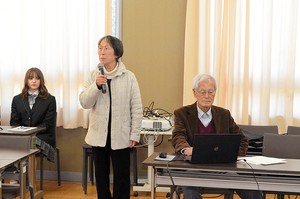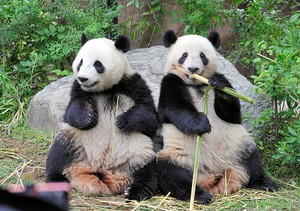By TOMOYA ISHIKAWA/ Staff Writer
March 15, 2024 at 07:00 JST
Nonfiction author Hideyuki Takano, who loves traversing the globe, said Japan is losing its footing as a powerful economy.
Whereas Japan has prided itself on being one of the world’s largest economies for more than half a century, its gross domestic product fell behind Germany to fourth place last year amid the weak yen.
A similar shock is said to have stricken Tokyo in 2010, when the nation was overtaken by China in GDP.
DIFFICULT TO ACCEPT
Takano, who was born in 1966, has toured outlying areas in Asia, Africa and South America for upward of 30 years.
He has traveled to more than 60 countries in those regions, along with Europe and North America.
Retracing Japan’s trajectory over the course of the past decade, Takano stated that the country has become an “outlying zone” in the world.
In an interview with The Asahi Shimbun on Jan. 29, he added that Tokyo’s “decline” is so terrible that it is difficult for him to face.
“Each time I return to Narita Airport or Haneda Airport, I realize few international airports elsewhere are as inconspicuous as they are,” Takano said. “I feel as if I was arriving at the last station in a rural area.”
Takano touched upon Japan significantly lagging in the digitization of payments, saying, he is “stunned” at the sight of people still relying on cash in the country.
He called it “unbelievable” that Japan still ranks as high as fourth in GDP in the world.
“There are about 200 countries worldwide and emerging countries have achieved remarkable growth during the time Japan has experienced continual sluggishness in its economy,” he said.
Takano contended that, despite this, many Japanese are hesitant about venturing out of their own home country these days.
He insisted those individuals are apt to believe they are the only ones who lead a modern life outside of Europe and the United States.
“They are committing themselves to ludicrous debate, discussing whether to embrace immigrants, because they mistakenly think migrant workers from other Asian states still long to come to Japan,” Takano said.
He continued: “Japan is being chosen as a destination to work in on fewer and fewer occasions. Young people in Japan are also feeling more and more compelled to head to other countries for higher wages.”
According to Takano, Germany has been taking in immigrants and refugees not only for humanitarian purposes, but also in its struggle to retain the nation’s productive population.
“And conservative Japan appears to be staying in a defensive shell, abandoning its former stance of learning from the rest of the world, although that attitude could have been found here before the economic boom” in the 1980s, he said.
LAND OF NOSTALGIA
In Takano’s opinion, inbound visitors from China and South Korea are flocking to Japan because they see the Asian neighbor as a declining country.
“Seeking to take temporary refuge from harsh competition in their societies, tourists wish to come into contact with natural surroundings, smiles and traditional lifestyles that have been lost in their own countries due to rapid development and urbanization,” he said.
Takano believes foreign sightseers are coming to Japan en masse today for the same reason Japanese once visited other Asian nations as well as Africa in search of “backwardness” that had disappeared in Japan due to economic growth.
Presenting his view on the action Tokyo should take from now, Takano said Japan should promote itself as “an ancient capital of the globe given its deteriorated politics, economy and technology.”
“Japan’s value basically lies in its history, cuisine and scenery,” he said.
“Japan is home to shrines, temples, old private houses and rich, natural features in every corner of many towns,” he said. “Meals full of variety, sophistication and quality are available anytime and anywhere, although such an experience is rarely discovered in other countries.”
Takano added, “Japan has a lot of pride and accepts outsiders only superficially while believing other nations should refer to it as a standard. All these traits are typical of ancient capitals, too.”
However, such elements “constitute the one-of-a-kind charm of the nation,” he said. “They cannot be built in a day. Japan is second to none in such tourism resources.”
One challenge for tourism in Japan is Tokyo’s failure to cater to the needs of overseas visitors, Takano said.
In his view, Japanese tend to be content with indulging in pleasures and extravagances of touring museums and other facilities on their trips since it is not easy for them to take longer vacations.
However, many foreigners consider vacations to be opportunities to enrich their lives and so want more indigenous experiences.
“There is room for service development and improvement, or in other words, potential, in not only famed tourist spots, but also casual public bathhouses and ‘ryokan’ (traditional inns) with ‘onsen’ (hot springs),” Takano said.
“The era of ‘Japan as Number One’ will never return,” he added. “But that’s fine. The new starting point for Japan is to notice the difference between its self-image and the way it is viewed by other members of the global community.”
Takano made his publishing debut with the title “Genju Mbembe o Oe” (Pursue the legendary animal Mbembe) while he was a member of Waseda University’s exploration club.
He has alike authored works such as “Nazo no Dokuritsukokka Somaliland” (Mysterious independent state Somaliland), “Nazo no Asia Natto” (Mysterious Asian natto) and “Iraq Suikoden” (Outlaws of the Marsh in Iraq).




















A peek through the music industry’s curtain at the producers who harnessed social media to help their idols go global.
A series based on diplomatic documents declassified by Japan’s Foreign Ministry
Here is a collection of first-hand accounts by “hibakusha” atomic bomb survivors.
Cooking experts, chefs and others involved in the field of food introduce their special recipes intertwined with their paths in life.
A series about Japanese-Americans and their memories of World War II